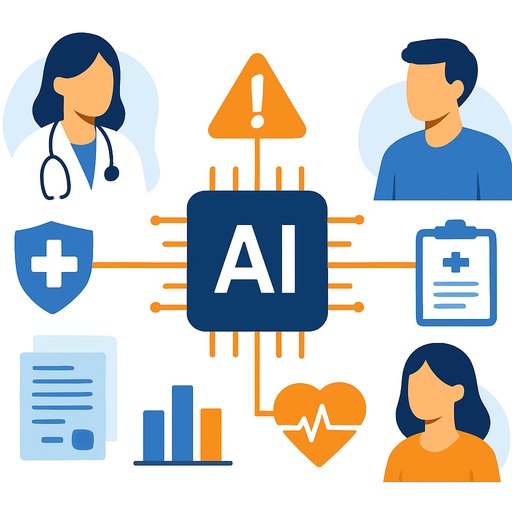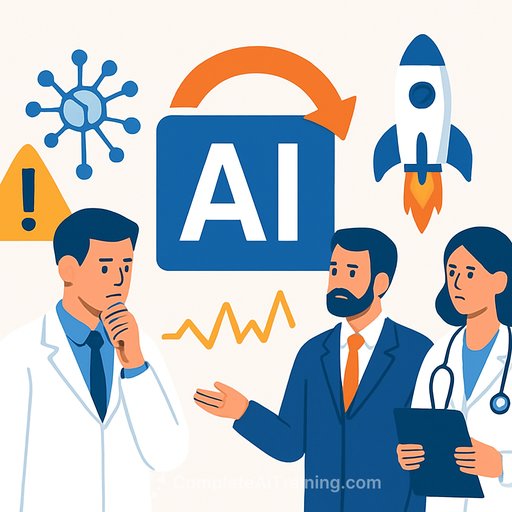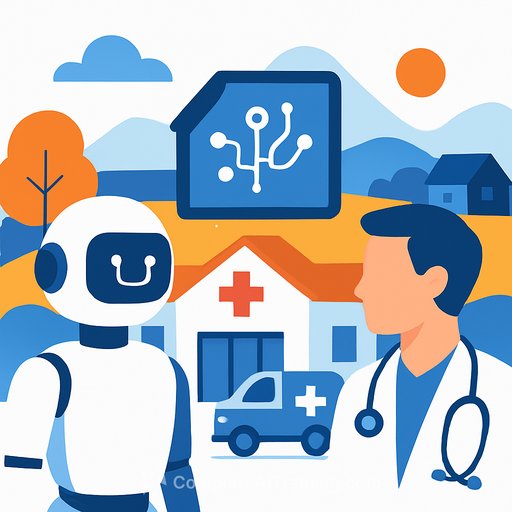Research and Innovation Transforming Health Care with AI: Dr. James Weinstein to Speak at Miller School Dean's Lecture
Artificial intelligence is changing how care is delivered, measured, and financed. James Weinstein, D.O.-renowned spine surgeon, health policy innovator, and senior vice president of Microsoft Health-will share how AI can re-architect health care ecosystems, not just automate tasks.
Dean's Lecture Details
- Register now
- Date and time: Sept. 23, 2025 at noon
- Location: Lois Pope Life Center Seventh Floor Auditorium
Why this matters for health care leaders
Dr. Weinstein's work centers on patient-centered care, health equity, and value-based delivery. At Microsoft Health, he leads global strategy to improve access and outcomes with AI-enabled tools and platforms.
He has long championed "informed choice" over traditional "informed consent," and helped advance Patient Reported Outcome Measures (PROMs) as a standard for assessing treatment efficacy. As he noted at an AAMC meeting, "I feel very optimistic that artificial intelligence will have a key role to help us transform systems that we all want to make better."
From tools to ecosystems
In a Harvard Business Review piece, Dr. Weinstein and Ron Adner argued that generative AI is a catalyst for ecosystem transformation. The opportunity is to rewire silos-clinical operations, population health, revenue cycle, and patient experience-into coordinated models that deliver measurable value.
He is clear about the goal: technology should serve patients. "Disruption generally refers to a substitution of technology to make a specific thing easier to do," he said. "But that doesn't necessarily change the patient experience for the better."
What clinicians, researchers, and administrators can take away
- Care redesign: Use AI to coordinate across settings-pre-op, acute, post-acute-while embedding PROMs to track real outcomes, not just process metrics.
- Equity by design: Require bias audits, representative training data, and clinician review workflows so AI supports fair access and decisions.
- Operational ROI: Target high-friction areas first (prior auth, triage, documentation, denials) and measure time saved, throughput, and patient-reported outcomes.
- Data strategy: Map data sources (EHR, imaging, claims, SDoH, PROMs) and define how they flow into models with clear governance and audit trails.
- Change management: Train teams, set escalation paths, and align incentives so adoption sticks and quality improves.
Questions to bring to the lecture
- Where does AI deliver proven value today, and what metrics should we track monthly?
- How do we integrate PROMs and "informed choice" into everyday workflows without adding burden?
- What guardrails reduce bias and prevent drift in clinical decision support?
- How should health systems partner with tech vendors while protecting data and IP?
- What operating model supports AI at scale across service lines and sites?
Proven leadership in value-based care
Dr. Weinstein's leadership at Dartmouth-Hitchcock Health and The Dartmouth Institute helped launch national collaborations such as the High Value Healthcare Collaborative, improving quality while lowering costs across 50 states. His research and policy work have influenced national advisory efforts and reform initiatives.
Next steps before you attend
- Identify one priority use case (e.g., PROMs-integrated triage, readmission risk, or denials reduction) and define success metrics.
- Inventory data readiness and governance policies, including privacy, consent models, and monitoring plans.
- Align a small cross-functional team (clinical, quality, IT, finance) to pilot and evaluate within 90 days.
Whether you are a clinician, researcher, student, or health care leader, this session is a chance to stress-test your roadmap against an ecosystem view of AI-driven care delivery.
If you need structured learning for care teams building AI skills, explore curated options by role at Complete AI Training.
Your membership also unlocks:






